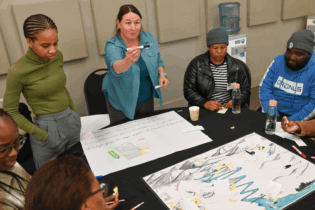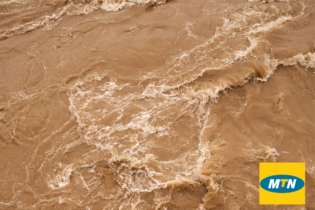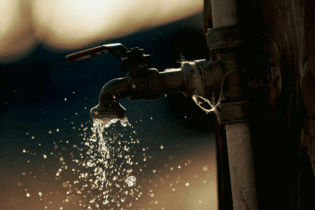By Peter Terwiesch, President of ABB’s Industrial Automation division
The latter part of 2017 and the early months of 2018 have been tough for residents of the Western Cape as a result of the prolonged drought plaguing the province.
The Western Cape’s water woes have brought home the stark reality that the water supply needs to be carefully managed, if we are to avert periodic crises brought on by drought and provide universal access to safe drinking water.
Water management
Water management starts with proper maintenance of the network. According to a 2017 GreenCape market intelligence report, South African cities lose some 37 of their water to leaks, a problem common to many countries – the World Bank estimates that utilities around the world lose between 25 and 30% of their water through leaks.
At the same time, the water infrastructure in the Western Cape is in much better condition than in many other places on account of a major upgrade following a severe drought in 2003-04, and a lot can be achieved by preventing unnecessary leaks.
Leak detection
Detecting leaks, especially in underground pipes, used to be extremely difficult and costly. But thanks to cloud-based information technologies coupled with smart flow measurement devices, it is now possible to locate leaks and faults by analysing data from a water network and using statistical algorithms to detect anomalies.
Other parameters, such as water quality, can be monitored with sophisticated water analysers that can measure contaminants down to the parts per million or even billion. Once a water network is connected to the cloud, there is the possibility of segregating sections, if pollution or infectious agents are detected.
Investment in alternative water sources
The Western Cape’s current problems stem primarily from its dependence on surface reservoirs, which rely on rainwater. Its dams provide around two-thirds of the water supply and usually have enough to withstand up to three years of lower-than-average rainfall. But the region is now in its fourth year of drought, which has led to the current near-critical situation.
With rainfall levels unpredictable, there is a clear need for investment in alternative water sources. Tapping groundwater is one possibility but in coastal regions desalination may be a better alternative.
New technologies in this area have lowered the costs and environmental impact of desalination plants, making them more feasible. When considering large investments in alternative water supplies, the costs need to be weighed against not only the cost of drought but also from diminished economy activity that a prolonged and severe drought can cause.
Mitigating climate change
With climate change expected to lead to more extreme weather events, governments and businesses need to consider how best to manage water resources. In the Western Cape and many other areas of South Africa, the frequency and severity of droughts are likely to increase, as is flooding. Combined with expanding urban populations and land development, the consequences could be very serious indeed.
Fortunately, the rapid advance of technology is providing solutions to avert and mitigate the impact of climate change. We may not be able to control the weather, but we can prepare for it and in doing so limit our own environmental footprint to delay or even halt global warming and to mitigate the impact of climate change.







